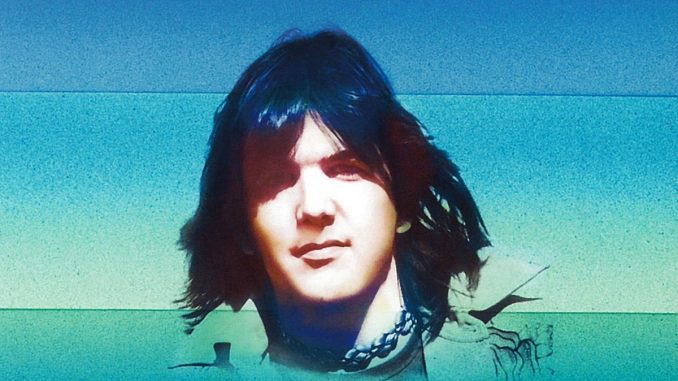
One of the more intriguing aspects of Gram Parsons’ second album, ‘Grievous Angel’, released four months after his death, is its closing track, ‘In My Hour Of Darkness’. It’s a glorious song which owes as much to gospel as it does to country music as Parsons pays tribute to three recently departed friends, just weeks before he himself left the planet. The song ends the album on a high note, a fine bookend to the equally gorgeous opening song, ‘Return Of the Grievous Angel’ and is one of six songs written (or co-written) by Parsons on the disc.
Credited to Parsons and Emmylou Harris, the song has three verses and a haunting chorus and features Linda Ronstadt joining the pair on vocal harmonies. Each of the verses pertains to a friend of Parsons, the first being Brandon De Wilde, the blonde kid who adored the gunfighter in the 1953 Western movie Shane. De Wilde died in a car crash in 1972 – as Parsons sings, “Who’d have thought they’d build such a deadly Denver bend.” Clarence White is the man strumming his silver stringed guitar on verse two, he was killed when struck by a drunk driver in July 1973, just two months before Parsons himself shuffled off. More obscure is Sid Keiser, the subject of the third verse. An old time Hollywood mover and shaker who managed Delaney & Bonnie at some point and who, allegedly, had the best grass in town (according to Phil Kaufman, the road wrangler who infamously stole Parsons corpse and cremated it in Joshua Springs). He died of a heart attack just days after White’s passing.
Obviously Parsons had no idea when he was recording the song in August that he was soon to join his three buddies in the great thereafter but when the album was released there was a weird irony in hearing him sing what could be considered by then to be his own elegy. In his biography of Parsons, ‘Hickory Wind’, Rolling Stone journalist Ben Fong-Torres writes, “Because Gram never lived to see through the details of the album including the order of songs…’Darkness’ was placed at the end of the second side, partly because it made sense, and partly because it could easily be read as a song about Gram himself, in particular the lines he wrote for Clarence:”
“Some say he was a star/But he was just a country boy/His simple songs confess
And the life he had in him/So very few possess.”



John Starling recorded a great acoustic version with Carolina Star on “Slidin’ Home” with Emmylou duetting on vocals.
Thanks Martin, I’ll check that out.
Style over sub stance.